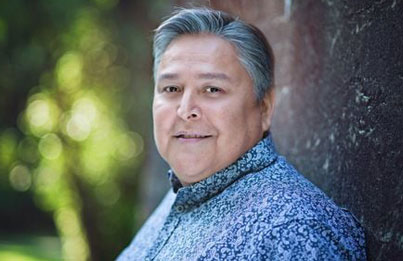Honoring National Indigenous Peoples Day with national best-selling author, Bob Joseph

In Canada, June 21 is National Indigenous Peoples Day (NIPD), held on the summer solstice, to recognize, learn, and celebrate the cultures, histories, and contributions of the First Nations, Métis, and Inuit Peoples of Canada. Hatch is committed to reconciliation and as an organization is actively working to support inclusion within our own sites and offices and with our clients as they deliver projects across the country.
In honor of NIPD, on June 18, Hatch employees across Canada were invited to tune in to an open dialogue with Bob Joseph, national best-selling author and founder and president of Indigenous Corporate Training Inc. Hosted by Chelsie Klassen, Hatch’s global director of Community Engagement, the two discussed Bob’s most recent book 21 Things You May Not Know About the Indian Act.
Since its creation in 1876, the Indian Act has shaped, controlled, and constrained the lives and opportunities of Indigenous Peoples, and is at the root of many enduring stereotypes. Bob’s book comes at a key time in the reconciliation process when awareness from both Indigenous and non-Indigenous communities is at a crescendo.
The book addresses many hard truths, and it can be hard to grasp that Indigenous Peoples lived—and still live—with the realities articulated in the Indian Act. The most important takeaway was that, even in the face of adversity, Indigenous Peoples held on to their beautiful culture, which we can celebrate on this important day.
The conversation covered topics of acknowledgement and policies in place that promoted assimilation and the traumatic impacts of residential schools before Chelsie and Bob looked at suggestions on where we can go from here. It has been proposed for decades that the Indian Act be abolished, with many chiefs in agreement. While this has yet to happen, Bob discussed the pathway to community healing and self-government.
Bob suggested that as individuals, we can be more inclusive and live up to the calls to action and recommendations in the Truth and Reconciliation Commission (TRC) and the calls to justice in the Murdered and Missing Indigenous and Girls Report. Bob encourages everyone to read the TRC's calls to action and continue with their reconciliatory work such as learning the history and culture of Indigenous Peoples, understanding the UN Declaration on the Rights of Indigenous Peoples, and continuing to have discussions on this topic with colleagues, clients, friends, and family.
Continue your learning by checking out the following links:
- Interview with Steve Paikin: The Indian Act Explained
- 10 Things You Can Do: Kamloops Indian Residential School
- Truth and Reconciliation Canada Commission of Canada (TRC) Findings Report and 94 Calls to Action
- An Overview of the Indian Residential School System, Anishinabek Nation
- How Senator Murray Sinclair responds to why don’t residential school survivors just ‘get over it’, CBC
Note: The term “Indian” referenced in this article is intended to describe the legal identity of an Indigenous person registered under the Indian Act and used only for legal or constitutional reference. It is not intended to be discriminatory.